Editor:
Brandon Sweet
University Communications
bulletin@uwaterloo.ca
Terms begin for senior administrators
July 1 marked the beginning of new terms of office for several senior administrators, and the beginning of second terms of office for returning University leaders.
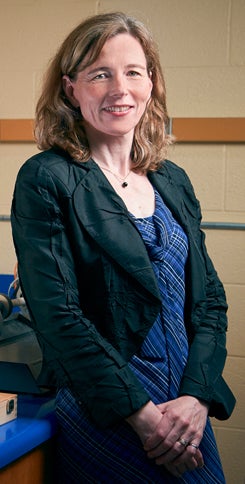 Mary Wells began a five-year term as Dean of the Faculty of Engineering. Professor Wells completed a B.Eng (Metallurgical Engineering) in 1987 at McGill University, and, following four years in industry, a PhD (Metals and Materials Engineering) in 1996 at the University of British Columbia. In 1996, Professor Wells joined the department of Metals and Materials Engineering at the University of British Columbia, where she progressed through the ranks from assistant to associate professor and held the Alcan Chair in Materials Process Engineering. Professor Wells joined the University of Waterloo as an associate professor in the department of Mechanical and Mechatronics Engineering in 2007, and was promoted to full professor in 2011. While at Waterloo, Wells served as associate dean of outreach, chaired the Women in Engineering committee, and was involved in numerous programs for girls and women, teachers and parents, and also served as chair of the Ontario Network of Women in Engineering (ONWiE). Wells became dean of the University of Guelph’s College of Engineering and Physical Sciences in November 2017, and her appointment as Dean of Waterloo Engineering was announced in March. Wells succeeds Professor Rick Culham, who had served as interim Dean of Engineering from January 1 to June 30, 2020.
Mary Wells began a five-year term as Dean of the Faculty of Engineering. Professor Wells completed a B.Eng (Metallurgical Engineering) in 1987 at McGill University, and, following four years in industry, a PhD (Metals and Materials Engineering) in 1996 at the University of British Columbia. In 1996, Professor Wells joined the department of Metals and Materials Engineering at the University of British Columbia, where she progressed through the ranks from assistant to associate professor and held the Alcan Chair in Materials Process Engineering. Professor Wells joined the University of Waterloo as an associate professor in the department of Mechanical and Mechatronics Engineering in 2007, and was promoted to full professor in 2011. While at Waterloo, Wells served as associate dean of outreach, chaired the Women in Engineering committee, and was involved in numerous programs for girls and women, teachers and parents, and also served as chair of the Ontario Network of Women in Engineering (ONWiE). Wells became dean of the University of Guelph’s College of Engineering and Physical Sciences in November 2017, and her appointment as Dean of Waterloo Engineering was announced in March. Wells succeeds Professor Rick Culham, who had served as interim Dean of Engineering from January 1 to June 30, 2020.
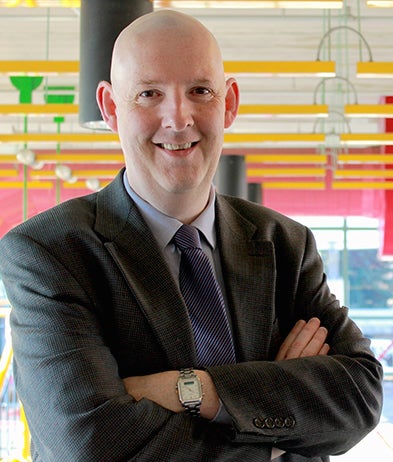 Mark Giesbrecht began a five-year term as Dean of the Faculty of Mathematics. Professor Giesbrecht completed his BSc at the University of British Columbia and earned both his MSc and PhD in Computer Science from the University of Toronto. He worked at IBM Canada before serving as Assistant Professor at the University of Manitoba and at Western University. He joined the University of Waterloo in 2001 as an Associate Professor. His service has included a variety of roles within the David R. Cheriton School of Computer Science including as Director (2014-present) and Associate Director (2009-11) and Director of Undergraduate Studies (2002-2005), and also serving as a member of Senate (2016-present). He is a Distinguished Scientist of the Association of Computing Machinery (ACM) and serves on several conference and journal editorial boards, as well as NSERC committees. Giesbrecht succeeds Professor Kevin Hare, who had been serving as interim Dean of Mathematics since January 2020.
Mark Giesbrecht began a five-year term as Dean of the Faculty of Mathematics. Professor Giesbrecht completed his BSc at the University of British Columbia and earned both his MSc and PhD in Computer Science from the University of Toronto. He worked at IBM Canada before serving as Assistant Professor at the University of Manitoba and at Western University. He joined the University of Waterloo in 2001 as an Associate Professor. His service has included a variety of roles within the David R. Cheriton School of Computer Science including as Director (2014-present) and Associate Director (2009-11) and Director of Undergraduate Studies (2002-2005), and also serving as a member of Senate (2016-present). He is a Distinguished Scientist of the Association of Computing Machinery (ACM) and serves on several conference and journal editorial boards, as well as NSERC committees. Giesbrecht succeeds Professor Kevin Hare, who had been serving as interim Dean of Mathematics since January 2020.
In addition, two deans mark July 1 as the commencement of their second term in office:
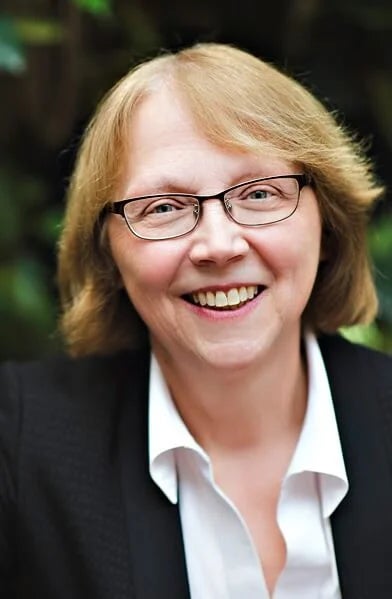 Jean Andrey is the Dean of the Faculty of Environment and was reappointed to a two-year term from July 1, 2020 to June 30, 2022. Professor Andrey completed her BA (1977) at Wilfrid Laurier University, her MSc in physical geography (1980) at the University of Calgary, and her PhD (1989) in geography at the University of Waterloo. A faculty member at Waterloo for nearly 30 years, she held the position of professor in the Department of Geography and Environmental Management before her appointment as Dean in 2015. Andrey’s past administrative service included her appointment as interim dean (August 2014 to June 2015), associate dean of graduate studies (2006-08, 2012-14), associate dean of graduate studies and research (2005-06), director of the joint graduate program in geography (2008-10), and graduate officer and associate chair of the department of geography (1991, 1998-2002).
Jean Andrey is the Dean of the Faculty of Environment and was reappointed to a two-year term from July 1, 2020 to June 30, 2022. Professor Andrey completed her BA (1977) at Wilfrid Laurier University, her MSc in physical geography (1980) at the University of Calgary, and her PhD (1989) in geography at the University of Waterloo. A faculty member at Waterloo for nearly 30 years, she held the position of professor in the Department of Geography and Environmental Management before her appointment as Dean in 2015. Andrey’s past administrative service included her appointment as interim dean (August 2014 to June 2015), associate dean of graduate studies (2006-08, 2012-14), associate dean of graduate studies and research (2005-06), director of the joint graduate program in geography (2008-10), and graduate officer and associate chair of the department of geography (1991, 1998-2002).
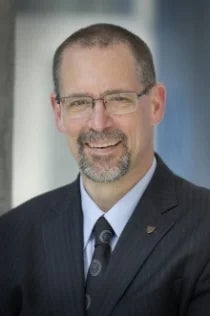 Robert Lemieux began a three-year term as Dean of Science, running from July 1, 2020 to June 30, 2023. Professor Lemieux completed his BA (1984) at the Colgate University, Hamilton, New York, and his PhD (1989) at the University of Illinois, Urbana, Illinois. He was a faculty member at Queen’s University from 1992 to 2015, holding the position of professor in the Department of Chemistry and serving as associate dean (research) in the Faculty of Arts and Science. His past administrative service included a one-year term as acting associate dean in the Faculty of Arts and Science and a five-year term as head of the Department of Chemistry.
Robert Lemieux began a three-year term as Dean of Science, running from July 1, 2020 to June 30, 2023. Professor Lemieux completed his BA (1984) at the Colgate University, Hamilton, New York, and his PhD (1989) at the University of Illinois, Urbana, Illinois. He was a faculty member at Queen’s University from 1992 to 2015, holding the position of professor in the Department of Chemistry and serving as associate dean (research) in the Faculty of Arts and Science. His past administrative service included a one-year term as acting associate dean in the Faculty of Arts and Science and a five-year term as head of the Department of Chemistry.
Other administrative appointments commencing July 1, 2020 include:
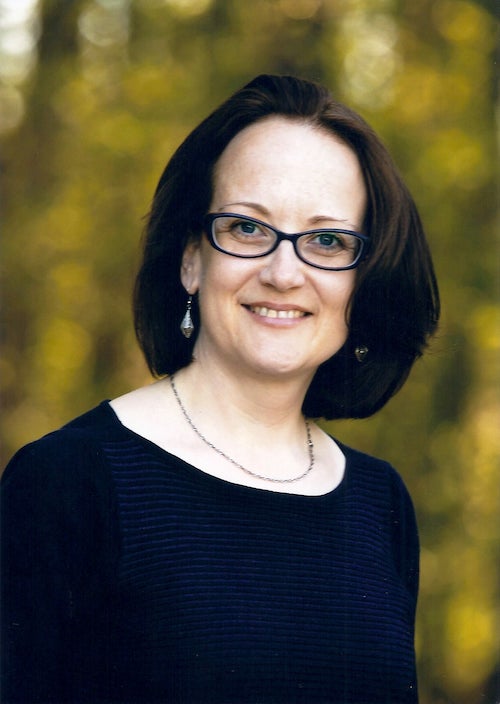 Jennifer Kieffer took on the role of Interim Associate Provost, Integrated Planning and Budgeting on a one-year secondment effective July 1. Kieffer has worked in Institutional Analysis and Planning (IAP) for fifteen years, first as an Institutional Analyst and, since 2013, as the Senior Manager of the Policy and Enrolment Planning team. Jennifer is an active member of the Council on University Planning and Analysis (CUPA), an affiliate of the Council of Ontario Universities (COU), and in 2018 was selected by CUPA as the recipient of the Marty England Award for leadership and excellence within the CUPA community. Kieffer succeeds Professor Susan Tighe, who departed from the position of Deputy Provost and Associate Vice President Integrated Planning and Budgeting, and whose portfolio is being reorganized and transitioned to a full-time staff role.
Jennifer Kieffer took on the role of Interim Associate Provost, Integrated Planning and Budgeting on a one-year secondment effective July 1. Kieffer has worked in Institutional Analysis and Planning (IAP) for fifteen years, first as an Institutional Analyst and, since 2013, as the Senior Manager of the Policy and Enrolment Planning team. Jennifer is an active member of the Council on University Planning and Analysis (CUPA), an affiliate of the Council of Ontario Universities (COU), and in 2018 was selected by CUPA as the recipient of the Marty England Award for leadership and excellence within the CUPA community. Kieffer succeeds Professor Susan Tighe, who departed from the position of Deputy Provost and Associate Vice President Integrated Planning and Budgeting, and whose portfolio is being reorganized and transitioned to a full-time staff role.
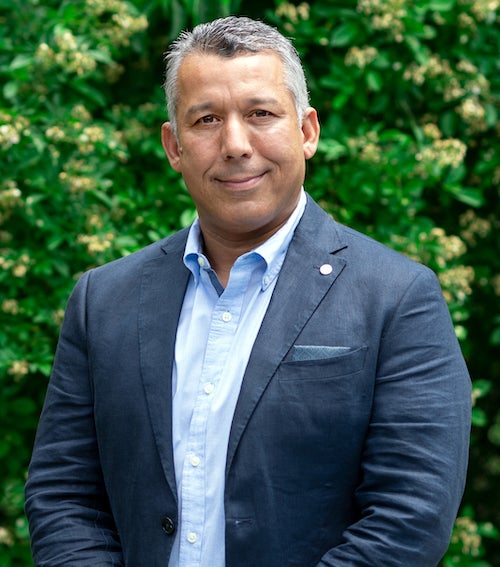 Professor Raouf Boutaba began a four-year term as Director of the David R. Cheriton School of Computer Science, effective July 1. Professor Boutaba completed a BSc in computer engineering at the University of Annaba, Algeria in 1988, followed by an MSc in 1990 and PhD in 1994 in computer science at Pierre and Marie Curie University, France. He joined the Cheriton School of Computer Science in 1999 as an Assistant Professor after three years as Lead Researcher at the Centre de Recherche en Informatique de Montréal. In 2002, he was promoted to Associate Professor and in 2007 to Full Professor. In 2016, he became the Associate Dean of Research in the Faculty of Mathematics and in July 2019 was appointed its first Associate Dean of Innovation and Entrepreneurship. Boutaba becomes the School's eighth director. Boutaba succeeds Professor Mark Giesbrecht. Read the full announcement on the Cheriton School of Computer Science website.
Professor Raouf Boutaba began a four-year term as Director of the David R. Cheriton School of Computer Science, effective July 1. Professor Boutaba completed a BSc in computer engineering at the University of Annaba, Algeria in 1988, followed by an MSc in 1990 and PhD in 1994 in computer science at Pierre and Marie Curie University, France. He joined the Cheriton School of Computer Science in 1999 as an Assistant Professor after three years as Lead Researcher at the Centre de Recherche en Informatique de Montréal. In 2002, he was promoted to Associate Professor and in 2007 to Full Professor. In 2016, he became the Associate Dean of Research in the Faculty of Mathematics and in July 2019 was appointed its first Associate Dean of Innovation and Entrepreneurship. Boutaba becomes the School's eighth director. Boutaba succeeds Professor Mark Giesbrecht. Read the full announcement on the Cheriton School of Computer Science website.
Congratulations all.
Q & A with the experts: rural recovery from COVID-19
The University of Waterloo has a number of experts available for comment on various aspects of the COVID-19 pandemic.
We know that cities and urban spaces have seen more cases of COVID-19 overall, but what unique challenges do rural communities face in the post COVID-19 world?
To help us understand rural recovery, we talked to Professor Heather Hall, an expert in economic development in rural Canada.
What are the unique challenges that rural economies face due to COVID-19?
Rural Canadians are struggling with unemployment, uncertainty, fear, and competing demands over work and providing childcare and family care much like the rest of Canada. But one of the biggest challenges in rural Canada has been access to broadband. We have rural communities where students cannot easily connect to virtual learning, where employees cannot easily work from home, where small businesses cannot easily transition to online sales because there is limited or no access to broadband. This is not a new issue in rural Canada – but COVID-19 has certainly shone a huge spotlight on the digital divide that exists in this country.
How can governments respond to the impacts of COVID-19 to better aid rural communities?
As we move into the recovery phase, senior governments need to focus on investments in long-term 21st century rural development. For example, building better social infrastructure, strengthening regional collaboration, supporting connectivity, building capacity, and strengthening climate resilience. Senior governments also need to build on assets that already exist in communities (e.g. businesses, infrastructure, social, community, natural assets) and support a diverse range of existing rural and regional organizations, including community non-profits and volunteer organizations. More specifically, senior governments should:
- Include rural expertise in all response and recovery efforts;
- Apply a rural lens and create rural specific policy responses;
- Fund, request, and analyze rural specific data to address the rural data gap;
- Provide rural specific economic recovery and stimulus funding; and
- Mobilize rural and regional boots-on-the-ground strategically.
Will the economic recovery in rural areas be faster, or slower than in urban spaces?
There is incredible diversity among rural communities across Canada which means some communities might recover faster while others might recover at a slower pace. Economic recovery will depend on the level of capacity in a community, access to resources, the state of the local economy prior to COVID-19, and the impacts of COVID-19 on local people, industries and businesses.
Heather Hall is an Assistant Professor in the School of Environment, Enterprise and Development (SEED) in the Faculty of Environment. She is an expert in innovation and economic development in rural and northern regions in Canada.
Notes as July heats up
Here's what's coming upat the Centre for Career Action (CCA):
- Tuesday, July 7: How to Make the Most of Your Next Decade (Recession Edition), 1:30 – 3:00 p.m.
- Tuesday, July 7: Networking in Academia (Grad/Postdoctoral Fellows), 10:00 a.m. – 12:00 p.m.
- See CCA’s offering of virtual programming online. Students can register on WaterlooWorks.
- Centre for Career Action virtual drop-in advising hours for July:
- Online résumé, cover letter and interview support, Career consults, and Work search drop-ins running 12:00 to 1:00 p.m., Monday through Friday. PhD and Postdoc drop-ins are running 12:00 to 1:00 p.m. on Tuesdays and Thursdays. Students can book virtual drop-ins on WaterlooWorks.
Human Rights, Equity and Inclusion will be hosting an online workshop on Wednesday, July 8. HREI201: Cultivating Consent Culture from an Intersectional Lens uses a critical intersectional lens to understand the impact of sexual violence on diverse individuals and communities. The online workshop takes place from 1:30 p.m. to 3:00 p.m.
Link of the day
When and Where to get support
Students can visit the Student Success Office online for supports including academic development, international student resources, leadership development, exchange and study abroad, and opportunities to get involved.
Instructors can visit the Keep Learning website to get support on adapting their teaching and learning plans for an online environment. The following workshops are current offerings from the KL team (CTE, CEL, ITMS, LIB):
Introduction to OER Courses,Tuesday, July 7, 10:00 to 10:30 a.m.
NEW - Teaching More Accessibly: Five easy improvements to our practice, Tuesday, July 7, 10:30 a.m.
Remote Course Design Essentials, Wednesday, July 8.
Introduction to Best OER’s in STEM, Thursday, July 9, 2:30 to 3:00 p.m.
NEW - Getting Ready to Facilitate Online Courses: TA Training, beginning July 13.
NEW - Introduction to OER Data & Simulations,Thursday, July 16, 11:00 to 11:30 a.m.
Employees can access resources to help them work remotely, including managing University records and privacy of personal information
Interested in learning more about engaging your students in an online course? The Centre for Extended Learning has created a new resource for you called "Fostering Engagement: Facilitating Online Courses in Higher Education"
ThisOpen Educational Resource was designed for post-secondary instructors and teaching assistants who would like to better understand the critical role of facilitation in online course delivery, and build practical skills and strategies that are relevant, effective, and authentic.
Here are some tips for staying healthy while working from home.
The Writing and Communication Centre has gone virtual. We have many online services to help you meet your goals, including: Virtual Pre-booked and Drop-in appointments, Online workshops, Virtual Grad and Faculty Writing Cafés, Instagram Live Q&A sessions, Live PJ-Friendly Write-ins, Online learning resources, and Online programming for Master’s and PhD students. Whatever you’re working on, we’re here to help! Visit our website for more information.
We understand that these circumstances can be troubling, and you may need to speak with someone for emotional support. Good2Talk is a post-secondary student helpline based in Ontario, Canada that is available to all students.
If you feel overwhelmed or anxious and need to talk to somebody, please contact the University’s Campus Wellness services, either Health Services or Counselling Services.
The Library has published a resource guide on how to avoid information overload.
The Faculty Association of the University of Waterloo (FAUW) continues to advocate for its members. Check out the FAUW blog for more information.
The University of Waterloo Staff Association (UWSA) continues to advocate for its members. Check out the UWSA blog for more information.
WUSA supports for students:
Food Support Service food hampers are currently available from the Turnkey Desk on weekdays from 9:00 a.m. to 4:00 p.m. in the Student Life Centre. If you have any questions please email us at foodsupport@wusa.ca.
MATES – Providing general online Peer Support via Skype to undergraduate students. To set up an appointment, please go to: https://wusa.ca/peersupport
Glow Centre - Providing online Peer Support for the LGBTQ2+ community via Skype to Undergraduate students. To set up an appointment, please go to: https://wusa.ca/peersupport
The Women’s Centre– Providing online Peer Support via Skype to undergraduate students. To set up an appointment, please go to: https://wusa.ca/peersupport
RAISE– Providing online Peer Support via Google to undergraduate students. To set up an appointment, please go to: https://wusa.ca/peersupport
The Bike Centre – Now open by appointment for your bicycle repair and rental needs in the Student Life Centre. For more information or to schedule an appointment, please go to: https://wusa.ca/bikecentre
Centre for Academic Policy Support - CAPS is here to assist Waterloo undergraduates throughout their experience in navigating academic policy in the instances of filing petitions, grievances and appeals. Please contact them at caps@wusa.ca . More information at http://wusa.ca/caps
WUSA Commissioners who can help in a variety of areas that students may be experiencing during this time:
- Equity – equity@wusa.ca
- Co-op and Experiential Affairs – coop.affairs@wusa.ca
WUSA Student Legal Protection Program- Seeking legal counsel can be intimidating, especially if it’s your first time facing a legal issue. The legal assistance helpline provides quick access to legal advice in any area of law, including criminal. Just call 1-833-202-4571.
Empower Me is a confidential mental health and wellness service that connects students with qualified counsellors 24/7. They can be reached at 1-844-741-6389.
When and Where (but mostly when)
Warriors Coaching Clinics. Every Wednesday from June 3 to July 15. Free online sessions highlighting a wide range of topics featuring Warriors Coaches and staff. Register in advance for the zoom link.
Warriors Jump Into June Challenge. Weekly challenges from June 8 to July 4 (Movement, Sleep, Water and Nutrition). Post your photo for a chance to win a $100 box from truLOCAL each week. Stay healthy Warriors!
Healthy Warriors at Home. Free programming including Online Fitness, Personal Training, Health Webinars, Personalized Nutrition and more. Open to students, staff, faculty and alumni. Register today.
Waterloo Warriors Online Camps. Online youth experiences including basketball, hockey and multi-sport camps for a variety of ages. Starting at $48.00/week. Register today.
Grammar studio I: The most common grammar trouble spots, Thursday, July 2, 2:00 p.m. Live Q & A on LEARN.
University of Waterloo internal communications survey deadline, Friday, July 3.
Design & deliver I: Structure and delivery, Monday, July 6, 10:00 am, Live Q & A on LEARN.
HREI201: Cultivating Consent Culture from an Intersectional Lens, Monday, July 6, 1:30 p.m. to 3:00 p.m.
International Live Chat #3 – Thriving in First Year, Tuesday, July 7, 9:00 to 10:00 a.m.
Leadership, Intersectionality, and Advancing in the Academy, Wednesday, July 8, 10:00 a.m to 11:30 a.m.
Science Live Chat, Wednesday, July 8, 11:00 a.m. to 12:00 p.m.
Intro Session: Billion Dollar Briefing, Wednesday, July 8, 6:30 p.m.
Grammar studio II: Sentence structure and punctuation, Thursday, July 9, 2:00 pm, Live Q & A on LEARN.
Engineering Live Chat, Thursday, July 9, 3:30 to 4:30 p.m.
Ask Us Anything: Indigenous Initiatives, Friday, July 10, 1:00 p.m. to 1:45 p.m.
NEW - Design & deliver II: Slide design (live webinar only), Monday, July 13, 10:00 a.m., Live Q & A on LEARN.
NEW - Graduate literature reviews B: Writing it, Monday, July 13, 10:00 a.m., Live Q & A on LEARN.
Positions available
On this week's list from the human resources department, viewable on the UWaterloo Talent Acquisition System (iCIMS):
- Job ID# 2020-5332 – Counsellor - Campus Wellness, USG 10-13
- Job ID# 2020-5446 - Academic Advisor - Mathematics Undergraduate Office, USG 7-8
- Job ID# 2020-5475 - Custodian I - Plant Operations, CUPE
Internal secondment opportunities:
- Job ID# 2020-5468 - Undergraduate Advisor - Cheriton School of Computer Science, USG 6
- Job ID# 2020-5447 - Academic Advisor - Mathematics Undergraduate Office, USG 7-8
- Job ID# 2020-5437 - Laboratory Technician, Additive Manufacturing - Mechanical & Mechatronics Eng., USG 7
- Job ID# 2020-5438 - Multi-Scale Additive Manufacturing (MSAM) Assistant - Mechanical & Mechatronics Eng., UGS 4
